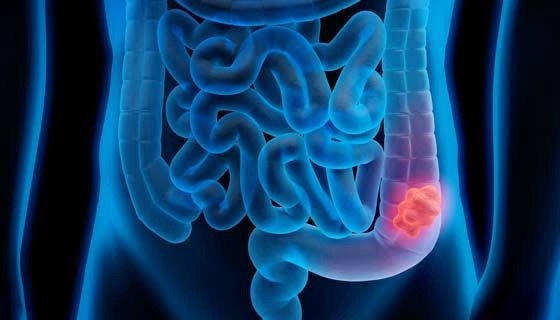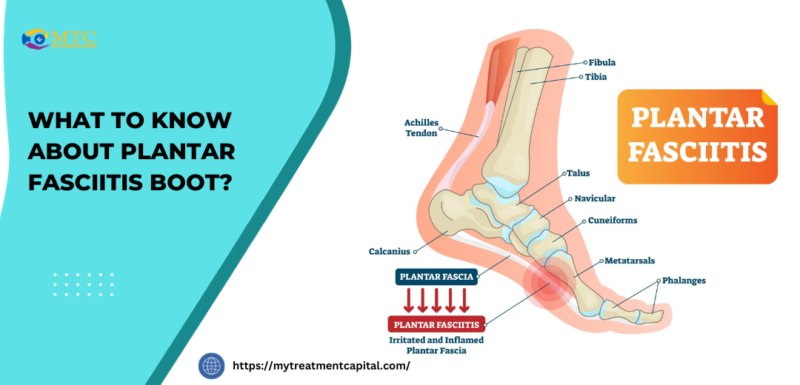Colon polyps are usually removed to prevent cancer and to allow for microscopic examination. While most polyps are harmless, some can change over time and develop into cancer, especially larger polyps.
A colon polyp doctor can remove polyps during a routine colonoscopy, which is the standard screening test for colorectal cancer. After removal, the polyps are sent to a pathologist to study under a microscope for signs of precancerous changes.
In this guide, we’ll clarify which doctors to see for colon polyps. Also, we will explain how these doctors check for colon polyps, the best treatments available, and answer other key questions to help you make an informed decision. Let’s dive in!
What Type of Doctor Treats Polyps?
For any health concerns, your primary care provider is usually the first point of contact. If you experience symptoms, or during routine screening, they identify the need for further assessment or treatment they may refer you to a colon polyp doctor. The different doctors that can help treat colon polyps include;
• Gastroenterologists
Gastroenterologists specialize in the digestive system. So, they are the primary choice for diagnosing and treating colon polyps.
These doctors are skilled in performing endoscopic procedures like colonoscopies, which are essential for detecting and removing polyps. In fact, if you have symptoms or a family history of polyps, a gastroenterologist is often your first point of contact if you’re looking for a colon polyp doctor.
• Colorectal Surgeons
Colorectal surgeons are also known as proctologists. This group of polyp doctors focuses on surgical procedures that involve the colon and rectum.
If polyps are large and difficult to reach, or if there’s a suspicion of cancer, a colorectal surgeon is the ideal type of colon polyp doctor you will want to see. These specialists have advanced training in removing complex polyps and managing complications that may arise during surgery.
• Primary Care Physicians
Primary care physicians (PCPs) as earlier explained play a crucial role in the initial consultation. They can perform preliminary evaluations, discuss symptoms, and refer you to a gastroenterologist or colorectal surgeon if needed.
PCPs also provide ongoing care and monitoring. They keep tabsyour treatment plan to ensure that you stay on track with your treatment and follow-up appointments.
How Do Doctors Check for Colon Polyps?
If your colon polyp doctor suspects that you have polyps, they will use screening tests to find the polyps before they change and become cancerous. Thanks to these screening tests, a skilled colon polyp doctor can also help you catch colorectal cancer early when it is still manageable. Here are the screening tests that colon polyp doctors use to check for colon polyps;
• Colonoscopy: This is the gold standard for colon polypsdetection and removal. During this procedure, a colon polyp doctor uses a long, flexible tube with a camera to examine the entire colon. If the specialist finds polyps, they can remove them immediately. The procedure typically requires bowel preparation and sedation.
• Sigmoidoscopy: A sigmoidoscopy is similar to a colonoscopy but only examines the lower part of the colon. The best part about this screening test for colon polyps is that it is less invasive and can be performed even without sedation. This procedure is often used for initial screenings or when symptoms suggest issues in the lower colon.
• CT Colonography (Virtual Colonoscopy): CT colonography, or virtual colonoscopy, uses CT scans to create a detailed image of the colon. This non-invasive procedure requires bowel preparation but no sedation. While effective at detecting polyps, it doesn’t allow for immediate removal. If polyps are found, a traditional colonoscopy is needed for removal.
• Fecal Tests: Fecal tests, such as the Fecal Occult Blood Test (FOBT) and Fecal Immunochemical Test (FIT), are non-invasive screening tools that detect blood or abnormal cells in stool. These tests are less comprehensive than a colonoscopy but are useful for routine screening and determining if further investigation is needed.
If colon polyps are detected and ascertained to be dangerous, your colon polyp doctor will turn their attention to removing them. The best treatment option depends on your individual case, the type of polyps found, and your overall health. A colon polyp doctor can use any of the methods below to remove the polyps;
• Polypectomy during Colonoscopy: The most common treatment for colon polyps is a polypectomy which is performed during a colonoscopy. The gastroenterologist uses specialized tools to remove the polyps and send them for biopsy. This procedure is effective, minimally invasive, and has a quick recovery time.
• Surgical Options: In some cases, especially with larger or more complex polyps, surgery may be required. Colon polyp doctors can perform various types of surgeries, such as a laparoscopic colectomy, which involves removing part of the colon. Surgery is typically reserved for polyps that cannot be removed endoscopically or when cancer is suspected.
• Monitoring and Surveillance: Regular monitoring and surveillance are crucial for preventing colon cancer. After polyps are removed, follow-up colonoscopies are scheduled based on the number, size, and type of polyps found. This helps ensure any new polyps are detected early and treated promptly.
Please note that not every name that pops up on your screen when you search colon polyp doctor can be trusted with diagnosis and treatment. That said, when choosing a doctor to treat colon polyps, consider their experience and specialization.
Gastroenterologists and colorectal surgeons with extensive experience in polyp removal are more likely to provide effective and safe treatment. Other than experience and specialization, the reputation and quality of the hospital where the doctor practices can impact your care.
Ideally, it would help to choose hospitals with advanced facilities and a focus on gastrointestinal health for procedures like colonoscopies and surgeries. Beyond those basics, ensure that the doctor you choose is covered by your insurance plan. This can help manage costs and ensure you receive the necessary care without unexpected financial burdens.
You may also want to spare some time to check patient reviews and recommendations to learn more about the expertise and patient care approach of your chosen colon polyp doctor. Look for doctors with positive feedback from patients who have undergone similar treatments.
In Closing
There are so many doctors who can help with colon polyp removal. But, you will want to focus on finding the right doctor to treat colon polyps to ensure effective diagnosis and treatment.
That said, don’t hesitate to ask questions and seek referrals. This is your health and it is only by taking the right steps will you make informed decisions and ensure comprehensive care. So, don’t rush the process.
At Gastrohealth Clinic @ Gleneagles, we specialize in safe and effective colon polyps removal in Singapore. Schedule your appointment today to see our approach and ensure your digestive health with our expert care. Contact us now!
Gastrohealth Clinic @ Gleneagles – Dr Bhavesh Doshi | Gastroscopy | Colonoscopy | Health Screening | EUS and ERCP Singapore
6A Napier Rd, #05-35C Gleneagles Hospital Annexe Block,
Singapore 258500
+65 6355 5773
Home



